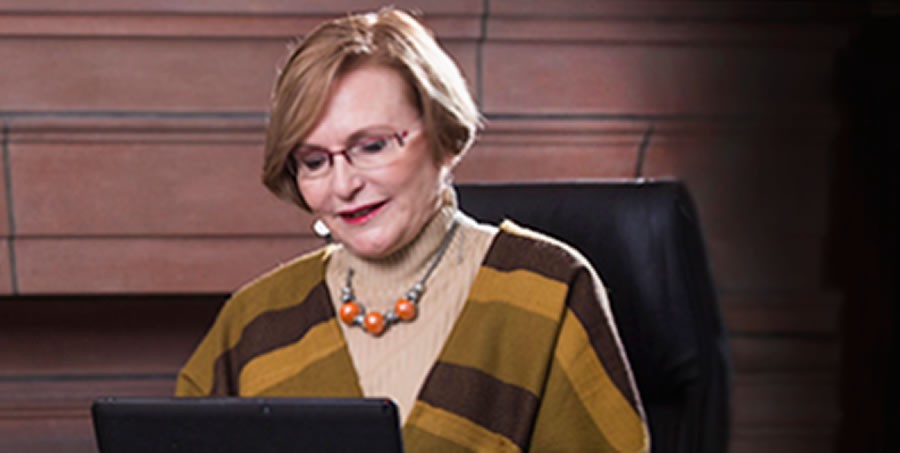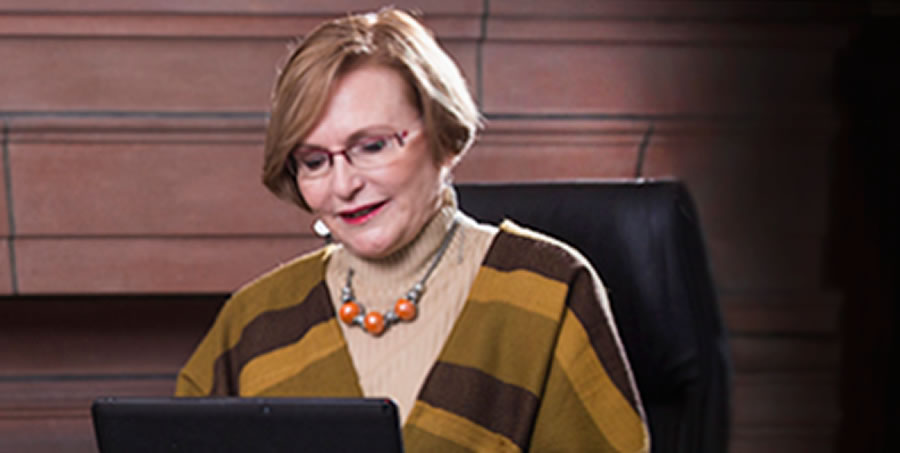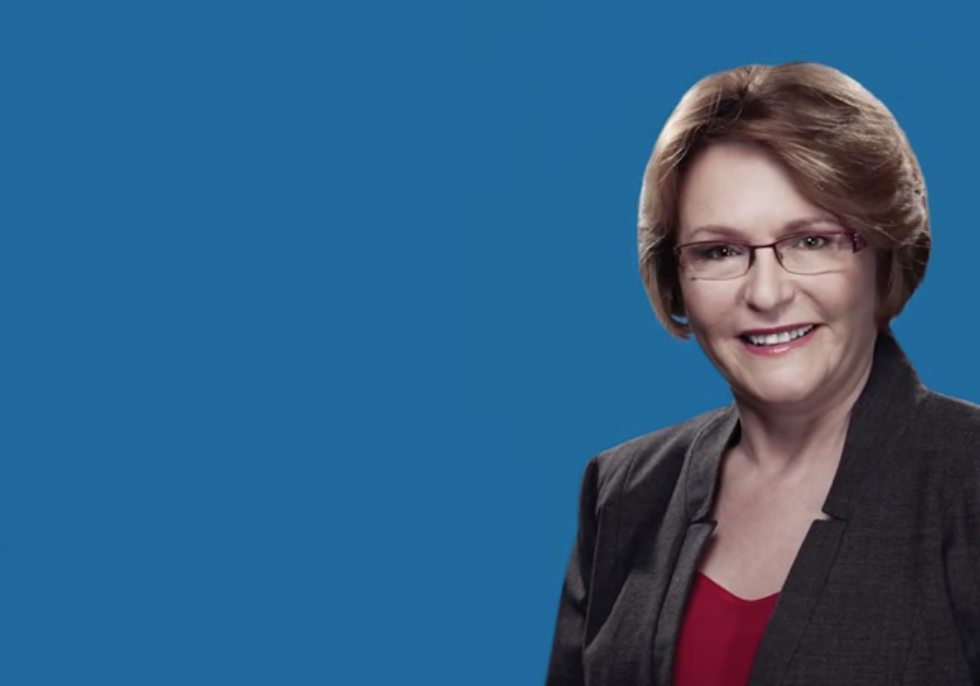
“300 Years of Progress in a Week” Says Optimistic Zille After SONA2016
Democratic Alliance premier of the Western Cape Helen Zille is a well-known and pithy Tweeter, and her recent response in her Inside Government newsletter to SONA2016 is no exception. Zille said she hadn’t been more optimistic in years, and South Africa had made 300 years of progress in just a week. The extract was part of a speech she […]

Democratic Alliance premier of the Western Cape Helen Zille is a well-known and pithy Tweeter, and her recent response in her Inside Government newsletter to SONA2016 is no exception. Zille said she hadn’t been more optimistic in years, and South Africa had made 300 years of progress in just a week.

The extract was part of a speech she delivered at the premier’s annual Consular Corps Brunch held on 12 February in Cape Town. Here is the newsletter Zille posted again on Tuesday.
Traditionally I give this speech to the consular corps, in my capacity as Premier of the Western Cape, on the morning after the State of the Nation Address (SONA). The purpose is to give my perspective on the address and analyse where I think South Africa is headed.
After the President spoke last night, the Rand depreciated and the commentators I have read this morning are generally negative and depressed.
Counter-intuitively, I have rarely been so optimistic about South Africa’s future as I am now.
Last time I felt so good about the future was in 1996, when we adopted our new Constitution. Today I am upbeat because our Constitution is working.
The real test of a country’s prospects is not merely that it adopts a good Constitution, as we did, but whether the constitution’s checks and balances work when the rubber hits the road.
When that happened last week, our Constitution was equal to the challenge.
At the heart of our constitutional democracy is the crucial notion of “accountability”. This requires checks and balances on power. And as we meet here today South Africa is a different place from the one we woke up to on Monday.
Let me begin with a theoretical framework for my observations.
Over the holidays I read Francis Fukuyama’s masterpiece: the Origins of Political Order and Political Decay.
Starting from the time our distant ancestors began to organise themselves collectively, right up to the development of the modern democratic state, Fukuyama examines the big question: what combination of factors creates the most conducive context for people to be able to live in peace and improve their circumstances: what factors are necessary to ensure a society where life is valued, where freedom is cherished and where inequality is limited; where there are opportunities for individual and collective progress? Some societies are closer to that ideal than others, and he asks: why?
He identifies a combination of three critical factors: the rule of law, accountability, and the capable state.
As I read this book I was convinced by the merits of the argument. The great value of identifying the key ingredients for success means that countries can measure progress by these yardsticks.
Indeed, they form the tripod on which our own Constitution rests.
Its adoption was a big step on the long road of progress. But on its own, it is not enough. It is crucial that a constitution is robust enough to protect the checks and balances against power abuse from gradual erosion.
During South Africa’s periods of optimism – euphoria even – I have often been depressed about our prospects because I saw those foundations of a successful society being eroded in front of our eyes.
For the first 15 years of our democracy we went through the process of concentrating more and more power in fewer and fewer hands. A greater threat to accountability and the rule of law is hard to imagine. At one point, following floor crossing in 2005, the ANC was a mere 3 seats short of a 75 percent majority in Parliament. Power was significantly more concentrated (and accountability was significantly weaker) than it was after our first democratic election in 1994.
During those years, I had been tasked by Tony Leon to start the DA’s first branches in Langa, Nyanga, Gugulethu, Cross Roads, and Khayelitsha. Back then, people living there literally took their life in their hands if they joined the DA; they had their houses burnt down and were summonsed to appear before kangaroo courts to face “charges” of joining a ‘white party’.
And with incredible courage, a few of them stood firm and said “this is not about race, it’s about the future of our democracy and defending the freedoms guaranteed in our Constitution, and one day we will be proved to have been right”.
Thinking back on those difficult days, let’s look at where we are now and consider whether the events of the past week, including the State of the Nation speech, have taken us in the right direction or not.
Against the yardstick of political and economic accountability, we have made substantial progress.
Firstly, we had a remarkable set of developments in the Constitutional Court.
We saw the counsel for the President admitting that the findings of the Public Protector are binding, and that they can only be reviewed by a court of law; and that the President had also made an error in law by asking the Minister of Police to second guess the Public Protector.
We saw the legal representative of Parliament also conceding an “error in law” by a Parliament that had failed to do its fundamental duty of holding the executive to account.
For the first time South Africa’s parliamentarians got the message loud and clear: South Africa is not a parliamentary democracy where a majority can take any decision it likes.
We are a constitutional democracy where the President and the Parliament are bound by the constitution and the law. Parliament’s job is to hold the executive to account, not defend the President and his officials.
South Africa was a different place at the end of this week than we were at the beginning of the week, and it was a much better place.
I can illustrate that through the example of four individuals: Nathi Nhleko (Minister of Police), Thulasi Nxesi (Minister of Public Works), Nhlanhla Nene (former Minister of Finance) and Max Sisulu (former Parliamentary Speaker).
Let me start with the two latter ones.
Max Sisulu was the Speaker at the time of the Public Protector’s report. He wanted to do the right thing and table the Public Protector’s report in Parliament for discussion. He was removed from office for seeking to ensure that the Parliament held the President to account.
Nhlanhla Nene last year reportedly resisted attempts by South African Airways to enter into an expensive aircraft leasing deal with a politically connected middleman. As we all know, he was also fired. These events sent a very clear message to the political establishment.
A week ago, if you were in the ANC and you wanted a political future, your best bet was to suck up to the power hierarchy (just as the Minister of Public Works, Thulas Nxesi and the Minister of Police, Nathi Nhleko had done over Nkandla).
By the end of the week the Constitutional Court proceedings made it unambiguously clear: “Your future in politics lies in defending the Constitution, not your boss”.
Parliament will never be the same again.
That does not imply that we have “arrived” as far as the rule of law and accountability are concerned. Far from it, the battle to maintain these principles is never-ending. And the biggest battle still lies ahead as we try to re-establish the independence and public accountability of the National Prosecuting Authority that has been “captured” by President Zuma.
Nevertheless, in the past week, South Africa made the kind of progress that took about 300 years in most other democracies.
Which brings me to the President’s SONA.
There were some of the traditional elements, such as an appeal to the past and a default to race.
But, the most noteworthy thing about President Zuma’s speech was that, for the first time, it reflected a real appreciation of the risks facing our economy.
The speech was noteworthy because, for the first time it did not pit business against labour. It accepted that investors are essential partners in tackling our economic crisis, and that unless they have confidence in the future to start new businesses and grow existing ones, there won’t be economic growth.
President Zuma had learnt that he cannot escape accountability for the state of the economy, and that firing his Finance Minister (in retaliation for financial prudence) was a devastating blow to the country, and particularly the unemployed.
A possible down-grade from ratings agencies is also a powerful lever of accountability. The President’s speech was really aimed at telling investors: I have heard you, on matters ranging from the need to make it easier to import skills, right through to the reduction of red tape and the privatisation of certain State-Owned Enterprises.
That speech made it clear that the ANC’s “tripartite alliance” with COSATU and the South African Communist Party no longer takes precedence over the need to attract investment.
That speech was remarkable not for what it said, but for whom it addressed. There was a complete shift in its audience.
When I got home, I switched on the television to follow the comments on the speech and there was Gwede Mantashe, the ANC Secretary General, explaining why there had been hardly any mention of labour. Gwede’s core message was: “we have to worry about the unemployed”.
Hallelujah. Unions, he argued, could not claim to represent the unemployed. It was unrealistic to focus exclusively on “decent” jobs when millions of people had no job at all. Economic inclusion was the first priority.
I think there has been a fundamental shift in government that says: our core constituency has to be the unemployed, not the unions.
So, in the past week there has been a great leap forward in our progress towards entrenching the rule of law and accountability.
Interestingly today President Zuma is in the same place that Mbeki was when the ANC recalled him in 2008. Only worse. President Zuma faces some additional major moments of accountability, through the application of the rule of law, when the Democratic Alliance pursues its case to have charges of corruption (that were withdrawn in 2009) reinstated against the President.
What about the capable state? Unless we put an equal focus on that, South Africa cannot succeed.
Within the context of the rule-of-law and accountability, the single most crucial variable that creates a context for growth, development and investment, is the capable state.
The Mayor’s speech on Cape Town reflects our attempt to build the capable state at local level, where government deals with basic services like electricity reticulation, sewage, water, refuse removal, road maintenance and public transport.
In the Western Cape we are doing the same in our areas of competence, such as health care and education.
It is an extraordinary privilege for us to be part of the endeavour to build a capable state where we govern. That is the purpose of our efforts, every day.
Whenever I go to Cabinet Lekgotla’s I hear more and more emphasis being placed on building a capable state. Which means that in future, President Zuma and his government will have to grasp thorny nettles such as the bloated civil service filled with deployed cadres, (rather than people appointed for the capacity to perform the functions of the job.)
And all this sets the scene for a major realignment of politics, to bring together those South Africans who want to uphold the constitution and the law, build a capable state and enable the economy to flourish so that everyone has a future.
We are closer to that goal now than we were, even a week ago.
The original newsletter appeared on the Western Cape government’s website.